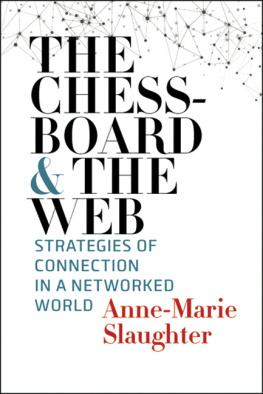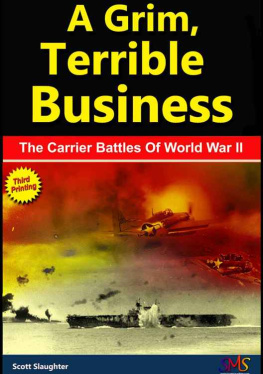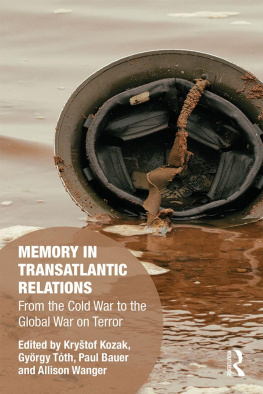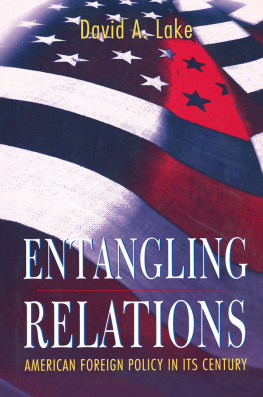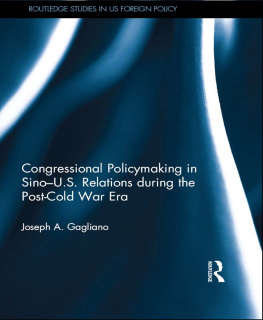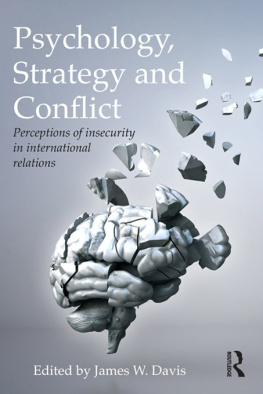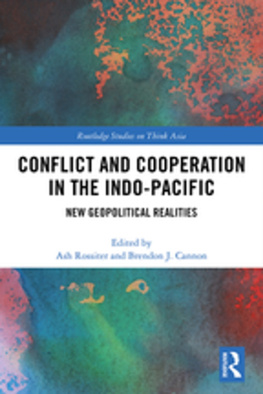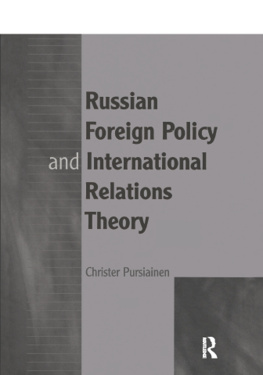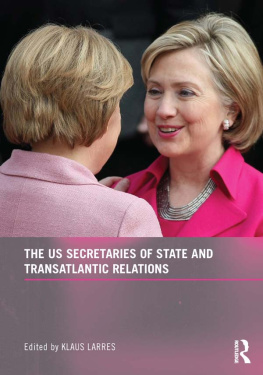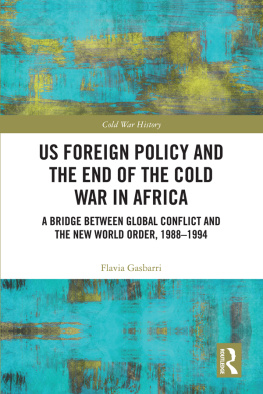THE HENRY L. STIMSON LECTURES SERIES

The Henry L. Stimson Lectures at the Whitney and Betty MacMillan
Center for International and Area Studies at Yale.
Copyright 2017 by Anne-Marie Slaughter.
All rights reserved.
This book may not be reproduced, in whole or in part, including illustrations, in any form (beyond that copying permitted by Sections 107 and 108 of the U.S. Copyright Law and except by reviewers for the public press), without written permission from the publishers.
Yale University Press books may be purchased in quantity for educational, business, or promotional use.For information, please e-mail (U.K. office).
Set in Janson and Van Dijck types by IDS Infotech Ltd.
Printed in the United States of America.
Library of Congress Control Number: 2016951588
ISBN 978-0-300-21564-9 (hardcover: alk. paper)
A catalogue record for this book is available from the British Library.
This paper meets the requirements of ANSI/NISO Z39.48-1992
(Permanence of Paper).
10 9 8 7 6 5 4 3 2 1
To my parents, Ned and Anne Slaughter
Contents
Introduction
I N June 2015, China and forty-nine other nations created the Asian Infrastructure Investment Bank, or AIIB. The United States had urged all its allies not to participate because it saw the AIIB as competition for the Asian Development Bank, which it had created in 1966 along with a cluster of European nations, Australia, New Zealand, Taiwan, Japan, India, and others. That the AIIB got off the ground was widely seen as a diplomatic fiasco for the United States.
The bank was an effort by the Chinese government to create its own international financial institutions as alternatives to the Bretton Woods institutionsthe International Monetary Fund and the World Bankset up by the United States and Western European nations after World War II. Ironically, President Obama fought hard to increase Chinas share of the vote in the IMF and World Bank, only to be blocked by his own Congress.
The same Western European nations that participated in the Bretton Woods agreements were the first to defect from the U.S. position on the AIIB. British Prime Minister David Cameron announced in March 2015 that Great Britain had important trading relations with China and would subscribe as one of AIIBs founding members. Germany, France, and Italy followed suit, as did Australia, New Zealand, and South Korea. Only Japan and Canada held back.
In the traditional terms of geopolitical competition, China 1, United States 0. Unfortunately, that frame of reference is what led the U.S. government to the wrong stance toward the AIIB in the first place. What if it had taken a different perspective from the outset? What if it had started from the proposition that more investment in infrastructure, wherever it comes from, is a positive development for the people affected and for regional and ultimately global economic growth? The starting point here is not competition between states but the well-being of citizens globally. The United States should still have been concerned that AIIB funds might be invested in ways that would benefit corrupt governments much more than their citizens, something the World Bank has plenty of experience with. The United States might rightly want to influence the development of the AIIBs rules and practices.
If the goal were having the most influence over the AIIBs development to benefit the people of Asia, the United States would have pursued a very different strategy. Influence requires connection; the denser the web of relationships, the greater the influence. From this perspective, the United States should have encouraged its allies and friends to sign up for the AIIB. We would then have had more insight into the banks workings and much more ability to influence our friends to influence its development. This kind of indirect influence is often more effective than if we had joined the bank ourselves as a counterbalance to China.
The same blinders were at work, far more tragically, in our policy toward the Syrian civil war. From a state-centered geopolitical perspective, President Obama was perfectly justified back in 2011 when he concluded, as Secretary of State James Baker said of the war in the Balkans in 1992, We dont have a dog in that fight. Following the short-lived Arab Spring, when the shooting started after six months of peaceful protests by Syrian civilians, and through the winter and spring of 2012, when the Syrian government under Bashar al-Assad sought to crush its opposition by the most brutal methods, the United States could reasonably conclude that the situation did not imperil Israel, Saudi Arabia, or Turkey, our principal allies in the region, and so did not directly affect U.S. geopolitical interests.
So the administration undertook a series of half-hearted and ultimately ineffectual measures aimed at trying to identify, unify, and bolster the Syrian opposition, although not in a way that gave them any chance against the Syrian army, or against the much better-financed and -equipped radical Islamist groups that ultimately became Jabhat al-Nusra and ISIS. The threat of ISIS, once it emerged, finally justified the use of air power in a way that even Assads use of chemical weapons and barrel bombs on his own people had not. But we directed this weaponry only against ISIS itself, not against the Syrian army. As of this writing, Russia and Iran are emerging as the clear geopolitical winners in Syria; U.S. allies in the region, other than Israel, are troubled by what they see as American weakness. Still, in strict geopolitical terms, the United States could reasonably conclude that its political, diplomatic, and military resources were better deployed elsewhere.
Yet from another perspective, the stakes of the Arab Spring for the millions of people who took to the streets across the Middle East and North Africa could not have been higher. This region, which has given us endless war and global terrorism of a kind that intrudes ever more insidiously into our daily lives, suffers from slow, repressive, unresponsive government that cannot deliver hope and opportunity to its young, restive populations. Its people are historically connected by a common language, history, culture, and religionand connected today via cell phones and social media, instantly galvanized by pictures of demonstrations and decapitations, and collectively moved by endless narratives of human suffering. The atrocities of the Assad regime, which to date has killed half a million of its own people and created the greatest refugee crisis since the Second World War, are an open wound in the middle of the Arab world.
Taking this connected human factor into account, the massacre of Syrian civilians with barrel bombs, chemical weapons, and starvation is not just a humanitarian issue but a strategic one as well. People subjected to such horrors have only two options: to fight or to flee. Those who have chosen to fight are watching American planes take to the air only to bomb ISIS installations, not to protect their family members from barrel bombs. They and the millions watching across the Middle East will conclude that our fine words about democracy and human rights are just that. They will turn their allegiance to whoever claims to offer protection and vengeanceprecisely the fanatics we seek to defeat.
Those who have chosen to flee include an estimated eleven million peoplemore than half the Syrian populationwho are now either refugees or internally displaced. At least a million have fled to Europe, and more will follow. Those rivers of humanity are now roiling European politics, fueling the rise of right-wing parties across Europe and a vote in Britain to leave the European Union. The coming apart of Great Britain and the EU, and possibly of the United Kingdom itself,
Next page
